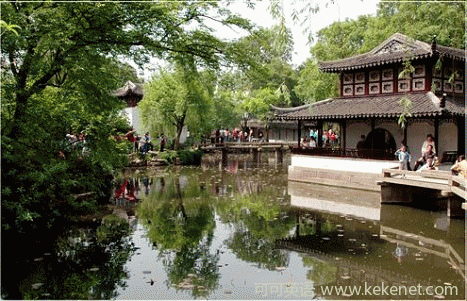(单词翻译:单击)

T he phenomenal success of Gangnam Style, a video by Korean rap artist Psy that has been viewed 280m times, is a quirky (and rather catchy) indication of South Korea's rising fortunes. The dance video gently sends up the nouveau-riche, plastic surgery-enhanced lifestyle that has been made possible by an economic transformation so extraordinary it is known as "the miracle on the Han River".
韩国说唱歌手朴载相(Psy)的音乐视频《江南风》(Gangnam Style)大获成功,点击量高达2.80亿次,它以一种怪异的(而且颇为吸引人的)方式体现了韩国的财富增长。这段舞蹈视频温和地嘲讽了那种暴发户式的、靠整形提高的生活方式。一场非同寻常的经济改革让这种生活方式成为可能,这一改革被称为"汉江奇迹"。
But something curious is happening. Just as South Korea is growing more confident on the world stage – culturally, economically and diplomatically – it is going through something of an existential crisis at home. Suicides are drastically higher, fertility is perilously low and the electorate is flirting with the idea of jettisoning traditional presidential candidates in favour of an untested IT entrepreneur.
但如今出现了一些奇怪的现象。就在韩国在国际舞台上变得更有信心——在文化、经济和外交方面——之际,该国国内却在经历一场"存在性危机"。自杀率高得惊人,生育率低得让人感到危险,选民们还生出了这样的念头:抛弃传统的总统候选人,支持一位毫无从政经验的IT企业家。
It seems an odd moment to be having a national nervous breakdown. Samsung and Hyundai have established themselves as premier consumer brands from Canberra to Cupertino. Korea's per capita income of $30,000 is fast closing in on the EU average of $33,000. And whether it is winning $20bn nuclear contracts in Abu Dhabi, pouring money into emerging markets such as India, China and Brazil, or vying with Japan to be Washington's best friend in Asia, Seoul is having a global impact as never before.
这个时候出现全国性的精神崩溃似乎令人费解。三星(Samsung)和现代(Hyundai)把自己打造成了一流的消费者品牌,从堪培拉到美国库比提诺,它们在世界各地扎稳了脚跟。韩国人均收入为3万美元,紧逼3.3万美元的欧盟(EU)平均水平。不管是赢得200亿美元阿布扎比核项目合同,还是大举投资印度、中国和巴西等新兴市场,或是与日本竞争成为美国在亚洲的最好朋友,韩国都显示出了以前从未有过的国际影响力。
That is not how it feels at home. The more that the residents of the fashionable Gangnam district live it up, the more Koreans feel their economic model is skewed towards a privileged elite. Some statistics suggest Korea is among the most unequal of advanced countries. Chaebol conglomerates, the pride of the nation abroad, are considered by many to be economic bullies at home, blamed for squeezing suppliers and pushing small businesses into bankruptcy.
但韩国国内却没有这样的感觉。时尚的江南区的居民过得越快乐,韩国人就越觉得本国经济模式向特权精英阶层倾斜。一些统计数据表明,韩国处于最不平等的发达国家之列。在国外,"财阀"(Chaebol)是韩国的骄傲,但在国内,它们却被很多人视为商业界的霸王,人们指责它们压榨供应商,连累小企业破产。
Whatever the impressive macroeconomic data suggest, more Koreans feel poor, overworked and weighed down by social pressures. Chief among their concerns is the stress and expense of putting their children through "exam hell", even in the knowledge that there are too many graduates chasing too few well-paid jobs. No wonder Korea's birth rate has plummeted – to 1.23, well below the 2.2 replacement rate and lower even than Japan, at 1.4.
不管引人注目的宏观经济数据表明了什么,如今有更多的韩国人觉得自己穷、工作过量、社会压力太大。他们主要担心的问题是让孩子经历"考试地狱"(exam hell)的压力和费用,即使在他们明白毕业生太多而高薪工作太少的情况下也不得不这样做。难怪,韩国的生育率下滑至1.23,远远低于2.2的人口替换率,甚至低于日本(1.4)。
The outgoing conservative government of Lee Myung-bak was good at putting on an international show. It hosted the G20 summit with aplomb. It attracted attention with its "green growth" agenda. But John Delury, assistant professor at Yonsei university, says it neglected domestic social and economic issues. Suicide rates have doubled over the past decade and are now the main cause of death for people under 40. The position of women has advanced at a much slower pace than the economy.
即将卸任的保守的李明博(Lee Myung-bak)政府擅长上演国际秀。这届政府满怀自信地承办了20国集团(G20)峰会。它的"绿色增长"议程获得了人们的关注。但延世大学(Yonsei University)助理教授鲁乐汉(John Delury)表示,政府忽视了国内的社会和经济问题。过去10年来韩国自杀率上升了一倍,现在自杀已成为40岁以下人群死亡的主要原因。女性地位的提高速度远远赶不上经济增速。
Nowhere is the sense of dissatisfaction more apparent than in the campaign for December's presidential election. The surprise package has been Ahn Chul-soo, a university professor and founder of Ahnlab, an antivirus company, who has gained a cult following especially among Korean youth. The 50-year-old independent – a sort of "anti-politician" – is polling above 40 per cent even though he only declared his presidential ambition this month. Mr Ahn is running against two establishment figures. Park Geun-hye is a conservative from the same party as the presidential incumbent. On the liberal establishment side, the Democratic United party has selected Moon Jae-in, aide to a former president.
韩国将于今年12月举行总统大选,而人们的不满情绪在竞选活动中表露得最为明显。大学教授、杀毒软件公司安博士(Ahnlab)的创始人安哲秀(Ahn Chul-soo)是一匹黑马,他赢得了很多选民的支持,特别是在韩国年轻人中间。尽管本月才公布参选意向,但这位50岁的独立候选人——一种"反政治家"——的民调支持率高于40%。安哲秀的竞争对手是两位显赫人物。朴槿惠(Park Geun-hye)是一名保守派,与现任总统同属一个党派。在自由派阵营方面,民主统合党(Democratic United Party)选举文在寅(Moon Jae-in)为该党总统候选人,此人曾是一名前总统的助手。
It is a measure of how much Koreans want a break from the past that Ms Park saw fit this week to apologise for the human rights abuses of her father, the dictator Park Chung-hee, who ran the country for 18 years until he was assassinated in 1979. (On hearing of his fate, his pragmatic daughter's first words were said to have been "Is the border secure?") Ms Park has felt it necessary to ditch her impeccably conservative credentials by moving towards the centre. She has taken to talking about "economic democratisation", a buzz phrase that embraces the idea of weakening the stranglehold of chaebol and fostering a more even distribution of wealth.
表明韩国人多么希望摆脱过去的一件事是,朴槿惠本周就其父亲、韩国前总统、独裁者朴正熙(Park Chung-hee)侵犯人权的行为致歉。朴正熙统治韩国18载,直到1979年被暗杀。(据说在听到他被暗杀的消息后,他那讲求务实的女儿的第一句话是"边境安全吗?")朴槿惠认为,通过向中间道路靠拢放弃她无可挑剔的保守主义立场是必要的。她开始喜欢讨论"经济民主化",这个时髦词汇支持削弱大财阀的桎梏,并促进财富的更平均分配。
Mr Ahn, whose supporters compare him with Barack Obama – the promising 2008 vintage, not the corked 2012 version – represents a rejection of old-style politics. "Moon is the man of the past, Park is a relic of the past, Ahn is the man of the future," is how Jang Sung-min, a former parliamentarian puts it.
安哲秀的支持者把他比作巴拉克•奥巴马(Barack Obama)——是2008年份那个大有希望的奥巴马,而不是2012年那个受到掣肘的奥巴马——他代表着对旧式政治的抛弃。前议员张诚岷(Jang Sung-min)称:"文在寅是过去的人,朴槿惠是过去的遗迹,安哲秀则是未来的人。"
The three-way race makes the election result highly unpredictable. Many expect Mr Ahn and Mr Moon to come to some sort of last-minute pact. If they do not, they risk splitting the liberal vote and handing victory to Ms Park, a result that would appear to be at odds with the anti-establishment mood.
这场"三足鼎力"的角逐让大选结果变得极为不可预测。很多人推测,安哲秀和文在寅将在最后一刻达成某种协议。如果他们没有达成协议,那么他们可能会分流自由派的选票,把胜利拱手让给朴槿惠,这种结果似乎将与反当权派情绪相悖。
One possible interpretation of the political mess in general and the popularity of the political novice Mr Ahn in particular is that Korea is going through a crisis of democratic legitimacy. That would be quite the wrong conclusion. The country that threw off dictatorship in 1987 is now as robust, if imperfect, a democracy as any in Asia, a rebuke to those who argue that Confucian societies or "Asian values" are somehow incompatible with the ballot box. Far from suggesting that democracy is failing Korea, the noisy tussle around the presidency shows a system adapting to the popular will. That, at least, should brighten the national mood.
对总体政局混乱、特别是政治"菜鸟"安哲秀颇受欢迎的一种可能的解读是,韩国正经历一场"民主合法性危机"。这样的结论将是大错特错的。韩国早在1987年就抛弃了独裁统治,现在是一个不逊于亚洲其他任何一个国家的稳健(即使不完美)的民主国家,这是对那些辩称儒家社会或"亚洲价值观"与选举不相容的人们的驳斥。围绕总统之位的吵闹绝非是在暗示民主正让韩国走向失败,而是展现了一种顺应民意的体制。至少,这应会让国民情绪好转起来。


